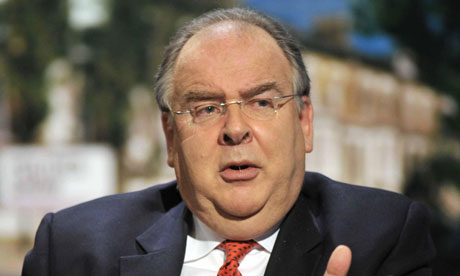 |
| Lord Falconer, the man behind the current Bill |
As I write, Lord Falconer’s “Assisted Dying” Bill is currently scheduled to be debated in the House of Lords this coming Friday, 18thJuly 2014. In this first of a series of posts I wish to examine some of the many problematic aspects of the proposed legislation. This first post will focus on the democratic and legislative issues with the Bill.
One of the organisations backing the Bill explains the rationale behind it as follows: “Dignity in Dying advocates a change in the law on assisted dying. We believe that, subject to strict upfront safeguards, the law should allow terminally ill, mentally competent adults to request life-ending medication from a doctor. The dying patient would then have the choice to self-administer that medication at a time that was right for them.”
There are three points that I shall make in this post. The first is that this is a Private Member’s Bill. It is was not a Government manifesto pledge, it is not a policy that has been developed by the Government during its term in office, rather it is a Bill introduced by an individual and reflects that individual’s own particular concerns. That is not to say that it does not have the backing of others, but it is not the policy of a political party and its democratically-elected members. Nor in fact is it even the Bill of a democratically-elected individual. Lord Falconer is a peer in the House of Lords and has no democratic mandate.
 |
| Houses of Parliament - is the process for this Bill and its implementation the way democracy should work? |
The second point to note is that the basic substance of the Bill has already been rejected by Parliament on several occasions before. Lord Falconer appears to have picked up the mantle of Lord Joffe – another unelected member of the House of Lords – who on four previous occasions put forward a Bill for “Assisted Suicide” (NB see how Lord Falconer is now using the word “dying” rather than “suicide”, more on this very serious wordplay in a subsequent post). Now, if a man were repeatedly to ask a girl out, despite her adamant rebuttals of his intentions, we might start to speak in terms of harassment. Similarly, one might ask how many times is it appropriate to ignore the repeated will of Parliament and seek to persuade it otherwise through the repeated introduction of private member’s bills, where nothing has substantially changed since the last time either House was asked to examine the Bill? In fact, with advances in palliative care, the case for assisted dying to relieve undue pain and suffering actually seems to have diminished since Lord Joffe first tried to introduce his Bill. It would also be naive to think that the progress of such private members bills, and the profile that they attract, has nothing to do with lobbying and the resources that requires.
The third point is that whilst Dignity in Dying and Lord Falconer seek to provide reassurance with calming talk of “strict safeguards”, the fact is that beyond a few very high-level points of principle, no safeguards are in fact introduced with the Bill. The safeguards that would actually operate in hospitals in practice do not form part of the Bill, but would be introduced at a later date by a Code of Practice. Thus a Bill introduced by an individual would have the key points of its implementation determined by an individual: Codes of Practice are drawn up by the Secretary of State for the relevant department. They are not debated by Parliament or made subject in any other meaningful way to parliamentary scrutiny.
Subsequent posts will go on to look at the unfair pressures that would be put on the medical profession by the proposed legislation: the inevitable pressure to choose death for patients who want to live; the abuse of language by the proponents of the Bill; and finally that the Bill absolves us of our responsibility to be more loving, not less.
In the meantime though you may wish to consider reading the Bishops’ Conference document on ‘Sense and Nonsense on “Assisted Dying”’ http://www.catholicchurch.org.uk/sense-nonsense-assisted-dying and any one of a series of excellent articles on the Oxford Students for Life blog http://studentsforlifeoxford.wordpress.com
Finally, but most importantly, please do not delay in making your voice heard on this matter. All the resources for all the different ways you can help are available at http://www.carenotkilling.org.uk/resources/falconer-final-weeks/
No comments:
Post a Comment